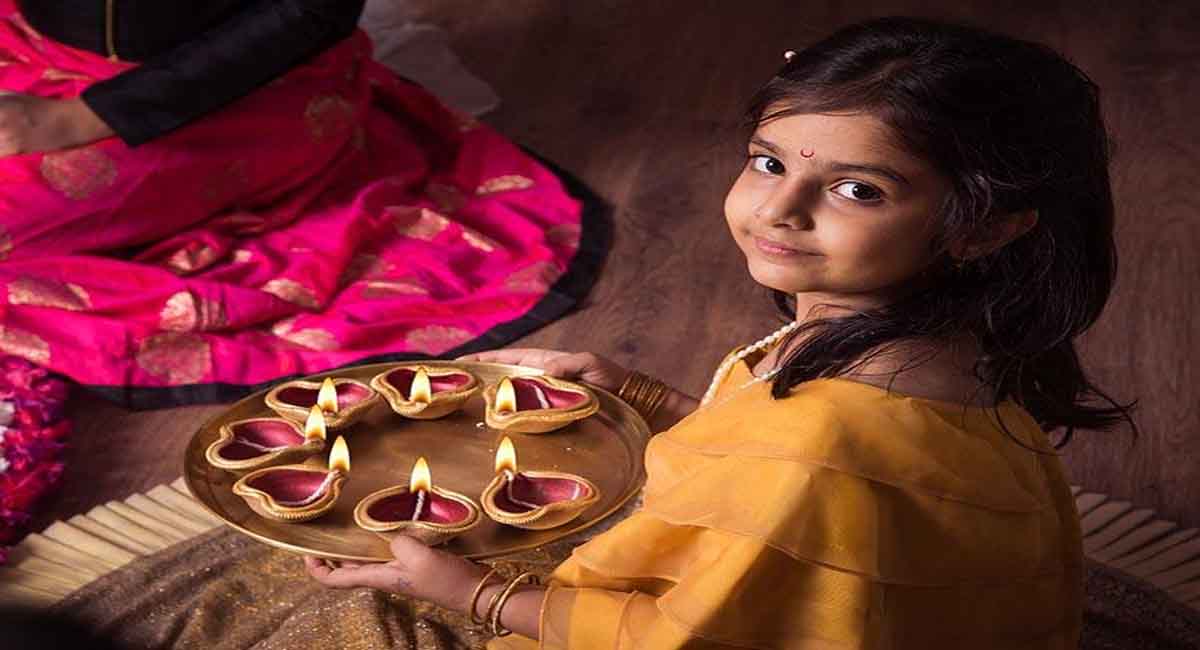Diwali, also known as the Festival of Lights, is one of the most significant and widely celebrated festivals in India and around the world. It is a time of joy, togetherness, and spiritual renewal. This article will explore 11 fabulous facts about Diwali, shedding light on its traditions, customs, and cultural importance.
Diwali 2023 Date, Tithi and Puja Muhurat
| Diwali 2023 Date | Sunday, November 12th, 2023 |
| Amavasya Tithi | From 02:44 pm on November 12th to 02:56 pm on November 13th in 2023 |
| Lakshmi Puja Muhurat | from 05:40 pm to 07:36 pm on November 12th |
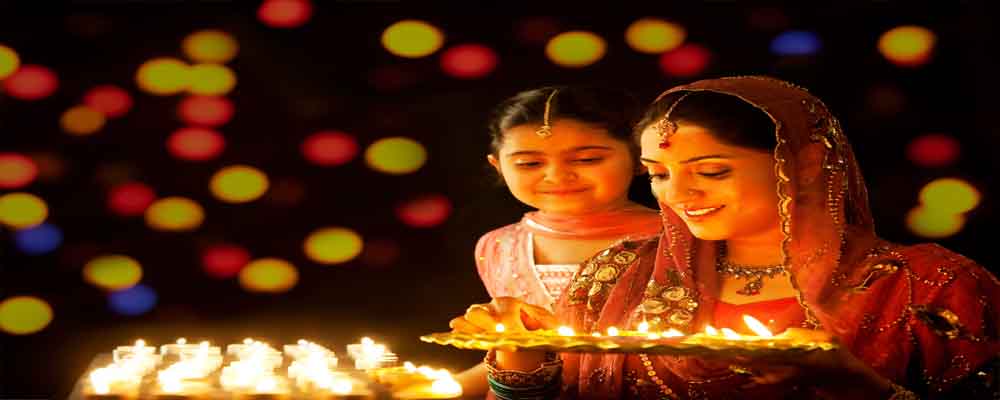
What is Diwali?
Diwali, derived from the Sanskrit word “Deepavali,” means “row of lights.” It is a Hindu festival that celebrates the victory of light over darkness and good over evil. Diwali is typically observed over five days and falls between October and November, depending on the lunar calendar.
The Significance of Diwali
Diwali holds great spiritual and cultural significance for Hindus, Jains, Sikhs, and some Buddhists. It signifies the triumph of righteousness and the removal of ignorance. The festival also symbolizes the homecoming of Lord Rama after defeating the demon king Ravana and the goddess Laxmi’s arrival to bless homes with prosperity.
The History of Diwali
Diwali has ancient roots dating back thousands of years. It is believed to have originated as a harvest festival and later evolved to commemorate various religious events, including Lord Rama’s return to Ayodhya and the attainment of nirvana by Lord Mahavira, the founder of Jainism.
Also read: Happy Diwali Wishes, Quotes, Images, Greetings, WhatsApp & Facebook Status
Diwali Preparations
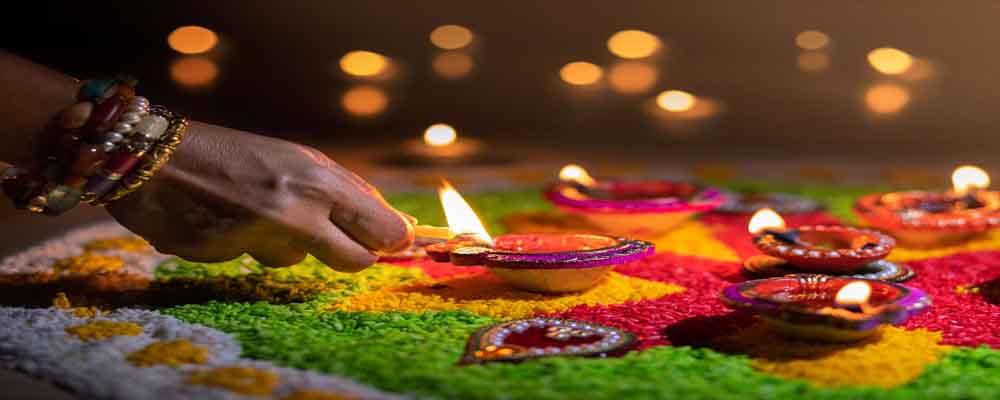
Cleaning and Decorating Homes
Before Diwali, people thoroughly clean their homes and decorate them with colorful rangoli designs, flowers, and lights. This cleaning ritual symbolizes the removal of negative energy and the welcoming of positive vibes.
Shopping for New Clothes and Gifts
Diwali is also a time for new beginnings. People buy new clothes and exchange gifts with family and friends. The act of giving gifts fosters love and strengthen relationships, spreading joy and happiness during the festive season.
Making Traditional Sweets and Snacks
One of the highlights of Diwali is the preparation of mouthwatering sweets and snacks. Families gather in the kitchen to create delectable treats like ladoos, barfis, and gulab jamuns. The aroma of these homemade delights fills the air, creating a sense of anticipation and delight for the upcoming celebrations.
Lighting up with Diyas and Candles
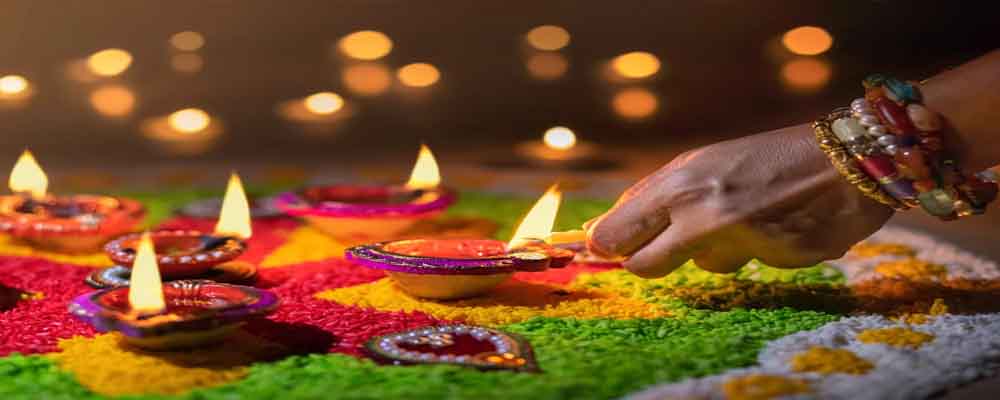
The Importance of Diyas and Candles
Central to the Diwali celebrations is the illumination of homes and surroundings with diyas (clay lamps) and candles. Lighting these traditional oil lamps symbolizes the victory of light over darkness and the dispelling of ignorance. The warm glow of diyas creates a serene and enchanting atmosphere, spreading a sense of peace and positivity.
Decorating with Rangoli
Another beautiful tradition during Diwali is the creation of intricate rangoli designs. Rangoli patterns, made with colored powders, rice, or flower petals, adorn doorsteps and courtyards. These vibrant and symmetrical designs are believed to bring good luck and ward off evil spirits. The artistic expression of rangoli adds an aesthetic charm to the festive ambiance.
Fireworks and Festivities
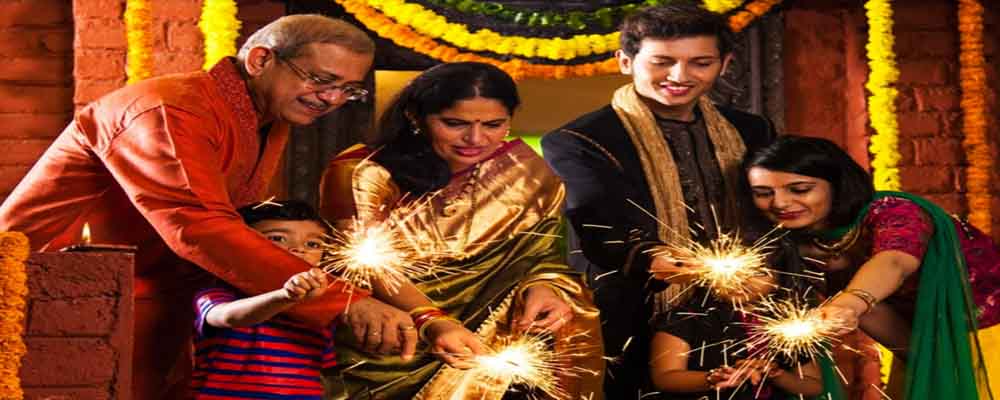
The Grand Celebration of Diwali
Diwali is a time of jubilant festivities, and fireworks play a significant role in the celebrations. As the sun sets, the night sky comes alive with a spectacular display of fireworks, filling the air with brilliant colors and sparkling lights. The crackling sounds and dazzling visual spectacle create an atmosphere of excitement and wonder, captivating both young and old.
Bursting Fireworks
Fireworks are an integral part of Diwali, but it’s essential to practice safety and respect the environment. While enjoying the fireworks, it’s crucial to follow local regulations and take precautions to prevent accidents or harm. Responsible firework usage ensures a joyous and secure celebration for everyone.
Exchanging Gifts and Sweets
During Diwali, people exchange gifts as a gesture of love and appreciation. From beautifully wrapped presents to boxes of sweets, the exchange of gifts strengthens bonds and spreads happiness. The act of giving and receiving gifts fosters a sense of generosity and gratitude, making Diwali a time of shared joy and abundance.
Delicious Diwali Delicacies
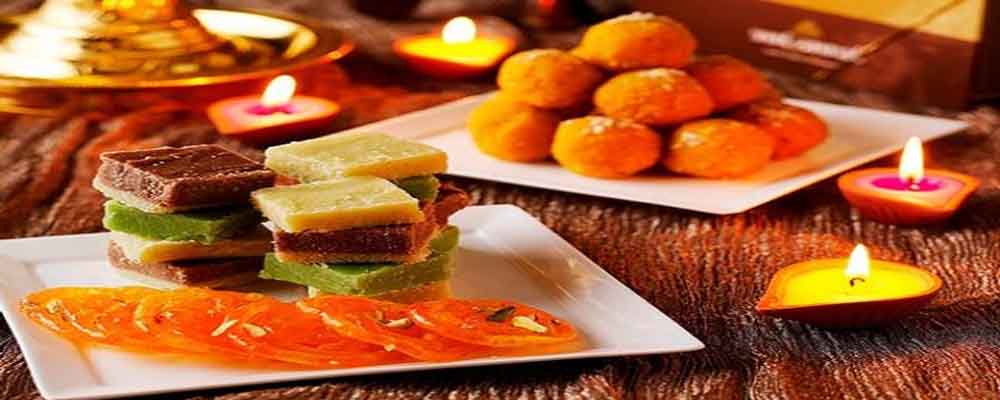
Traditional Indian Sweets
Diwali is synonymous with indulging in an array of traditional Indian sweets. From the rich and creamy textures of gulab jamuns and rasgullas to the melt-in-your-mouth sweetness of jalebis and pedas, these desserts hold a special place in Diwali celebrations. The variety of flavors and the meticulous craftsmanship involved in their preparation showcase the culinary heritage of India.
Savory Snacks and Dishes
Alongside the sweets, Diwali is a time for savoring an assortment of savory snacks and dishes. From crispy samosas and spicy pakoras to aromatic biryanis and flavorful curries, the festive feast tantalizes taste buds and delights the senses. Families come together to relish these delectable treats, creating unforgettable culinary experiences.
Diwali Cultural Traditions and Rituals
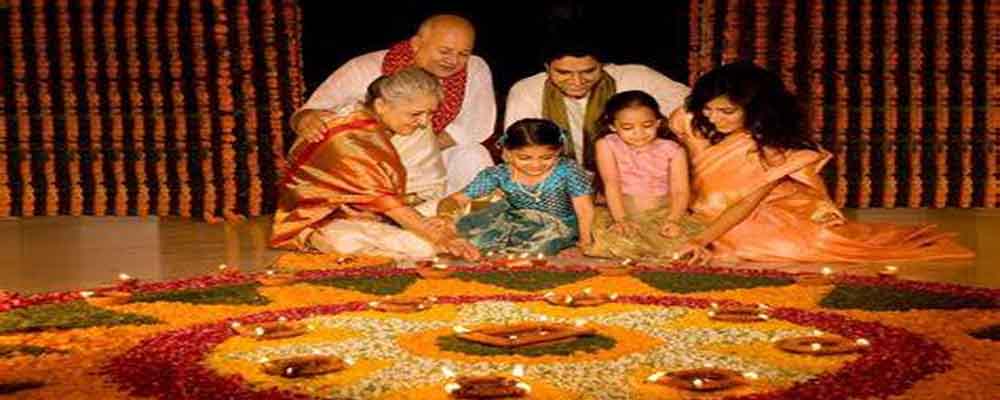
Laxmi Puja
Diwali is incomplete without the performance of Laxmi Puja, a ritual to worship the goddess of wealth and prosperity, Laxmi. Families gather in prayer rooms, beautifully adorned with flowers and incense, to offer prayers and seek blessings for abundance and good fortune. The divine energy invoked during Laxmi Puja creates an atmosphere of spirituality and devotion.
Playing Cards and Gambling
In some regions, playing cards and gambling are traditional activities associated with Diwali. Families and friends come together for friendly card games, adding an element of excitement and friendly competition to the festivities. It is a time for laughter, strategizing, and creating lasting memories. However, it is important to remember to engage in responsible and moderate gambling, keeping the spirit of fun and camaraderie alive.
Visiting Relatives and Friends
Diwali is a time for reconnecting with loved ones. Families and friends visit each other’s homes, exchanging warm wishes and blessings. The festive atmosphere brings people closer, fostering a sense of unity and togetherness. These visits strengthen relationships and create cherished moments of joy and laughter.
Diwali Around the World
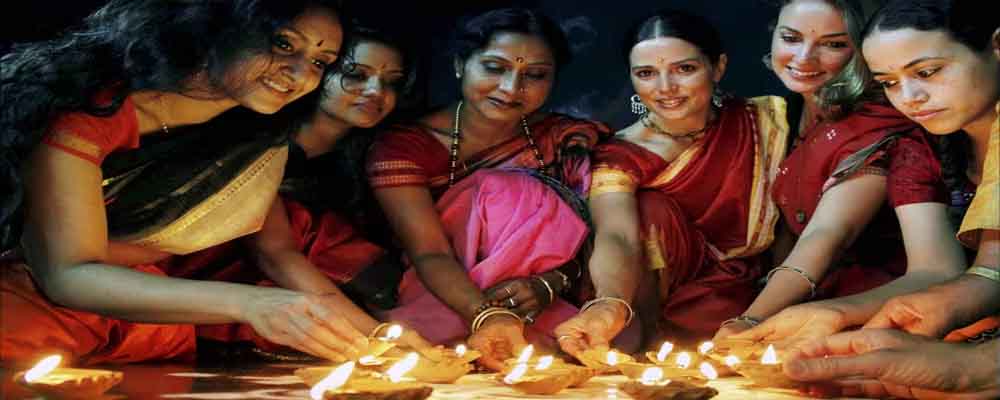
Diwali in Different Countries
Diwali is not only celebrated in India but also in various parts of the world. Countries like Nepal, Sri Lanka, Malaysia, Singapore, and Mauritius have significant Diwali celebrations due to their vibrant Indian diaspora. These global celebrations showcase the diversity and universality of the festival, spreading the message of light and harmony across borders.
Diwali in India
In India, Diwali is celebrated with immense enthusiasm and cultural diversity. Each region has its unique customs and rituals, adding a distinct flavor to the celebrations. From the grand Diwali processions in Jaipur to the lighting of thousands of oil lamps in Varanasi, the festivities capture the essence of Indian heritage and spirituality.
Diwali in Nepal
In Nepal, Diwali is celebrated as Tihar, a five-day festival that honors various deities and animals. Each day has its own significance and rituals, including worshiping cows, dogs, and crows. Tihar showcases the deep-rooted religious and cultural ties between India and Nepal, highlighting the shared traditions and values.
Diwali in Other Parts of the World
Beyond South Asia, Diwali has gained recognition and popularity in many Western countries. Cities like London, New York, and Sydney witness grand Diwali celebrations, including public events, cultural performances, and firework displays. These global observances promote intercultural understanding and appreciation, fostering a sense of unity among diverse communities.
Environmental Concerns and Eco-Friendly Celebrations
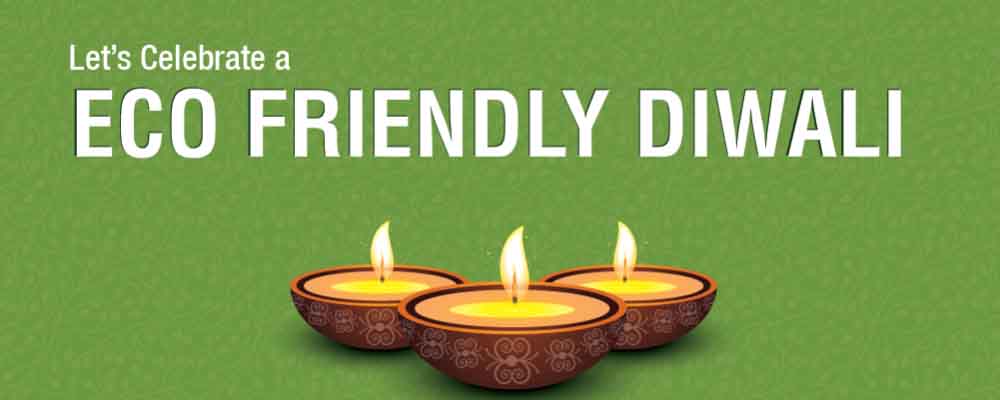
The Impact of Diwali on the Environment
While Diwali is a time of joy and celebration, it is important to be mindful of its environmental impact. The bursting of fireworks and the excessive use of electricity during the festivities contribute to air and noise pollution. Additionally, the use of non-biodegradable materials for decorations adds to waste accumulation. It is crucial to adopt eco-friendly practices and prioritize sustainable celebrations.
Using Eco-Friendly Materials
To minimize the ecological footprint, individuals can opt for eco-friendly alternatives in their Diwali decorations. Using natural materials, such as flowers, leaves, and organic colors for rangoli, reduces the environmental impact. Choosing LED lights and limiting their usage helps conserve energy. Small changes in celebration practices can go a long way in preserving the environment for future generations.
Celebrating a Green Diwali
Embracing a green Diwali involves incorporating sustainable habits into the festivities. This includes minimizing the use of fireworks, opting for eco-friendly crackers, and encouraging community-led firework displays that adhere to safety regulations. Additionally, supporting local artisans and buying eco-friendly products promotes sustainability and empowers traditional craftsmanship.
Diwali and the Spirit of Giving
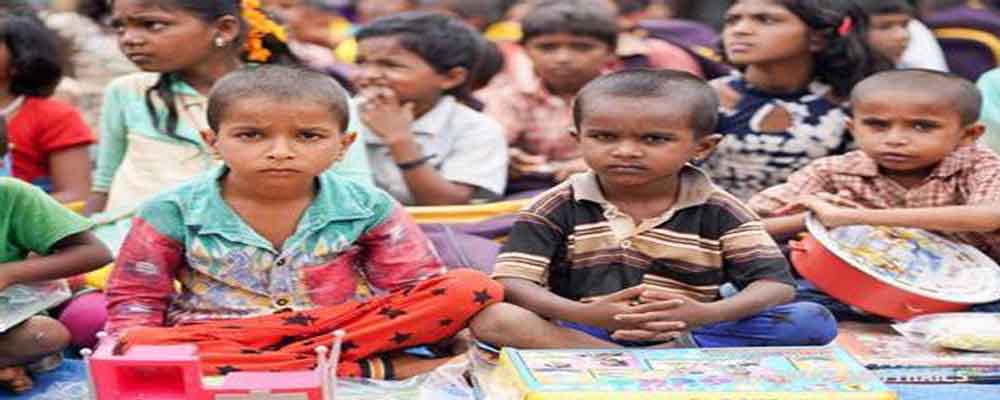
Charity and Donations During Diwali
Diwali is a time when the spirit of giving is at its peak. Many individuals and organizations engage in charitable activities, donating money, food, and clothing to the less fortunate. The act of selfless giving during Diwali reflects the essence of compassion and generosity, spreading love and hope to those in need.
Charity Causes – Donate Now!
Helping the Underprivileged
Diwali presents an opportunity to uplift the underprivileged and marginalized sections of society. From organizing community meals and distributing blankets to the homeless to supporting educational initiatives for children, there are numerous ways to make a positive impact. Volunteering time and resources during Diwali cultivates empathy and fosters a sense of social responsibility, making the festival a time of compassion and collective welfare.
Sharing Happiness and Blessings
Diwali is a time to share happiness and blessings with those around us. It is a time to mend broken relationships, forgive past grievances, and foster unity. Reaching out to family, friends, and neighbors with kind gestures, heartfelt wishes, and small acts of kindness creates an atmosphere of love and harmony. The spirit of Diwali lies in spreading joy and positivity in our interactions with others.
Conclusion
Diwali, with its vibrant traditions, customs, and celebrations, holds a special place in the hearts of millions around the world. It is a festival that transcends borders and brings people together in a spirit of joy, hope, and togetherness. From the lighting of diyas and fireworks to the exchange of gifts and the indulgence in delicious sweets, every aspect of Diwali reflects the triumph of light over darkness and the power of unity and compassion.
As we celebrate Diwali, let us embrace the true essence of the festival—spreading happiness, practicing sustainability, and nurturing our connections with loved ones. May the light of Diwali illuminate our lives and inspire us to be agents of positive change in our communities and the world.
Frequently Asked Questions
What is the significance of Diwali?
Diwali holds great spiritual significance as it symbolizes the victory of light over darkness and good over evil. It is a time for self-reflection, renewed spirituality, and fostering positive energy.
How long does Diwali last?
Diwali is typically celebrated over a period of five days, with each day having its own rituals and customs.
Can non-Hindus celebrate Diwali?
Absolutely! Diwali is a festival of joy and inclusivity. People from all backgrounds are welcome to participate and experience the vibrant celebrations.
Why are fireworks a part of Diwali celebrations?
Fireworks are believed to ward off evil spirits and bring joy and prosperity. However, it’s important to use fireworks responsibly, considering the impact on the environment and the safety of everyone involved.
How can I make my Diwali celebrations eco-friendly?
You can make your Diwali celebrations eco-friendly by using LED lights, opting for eco-friendly decorations, minimizing the use of fireworks, and practicing responsible waste management.

